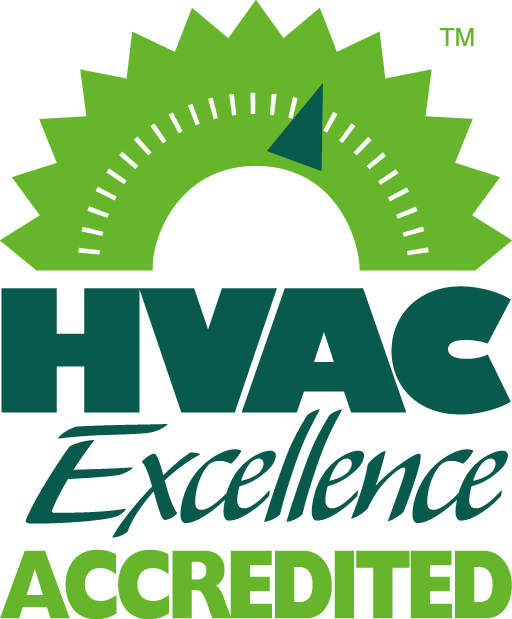HVAC & Refrigeration
Course Info
- Heating, Ventilation & Air Conditioning Level I
- Heating, Ventilation & Air Conditioning Level I Dual Enrolled
- Heating, Ventilation & Air Conditioning Level II
- Heating, Ventilation & Air Conditioning Level II Dual Enrolled
- Dual Enrolled Curriculum offered through Northern Virginia Community College
- Level I Heating, Ventilation & Air Conditioning - AIR 121 Air Conditioning and Refrigeration through Northern Virginia Community College - 4 Credits - Studies refrigeration theory, characteristics of refrigerants, temperature and pressure, tools and equipment, soldering, brazing, refrigeration systems, system components, compressors, evaporators, and metering devices. Presents charging and evaluation of systems and leak detection. Explores servicing the basic system. Explains use and care of oils and additives and troubleshooting of small commercial systems.
- Level II Heating, Ventilation & Air Conditioning - AIR 111 Air Conditioning and Refrigeration Controls I -3 Credits - Presents electron theory, magnetism, Ohm’s Law, resistance, current flow, instruments for electrical measurement, A.C. motors, power distribution controls, and their application.
Course Description
Heating, Ventilation & Air Conditioning, Level 1
Credit: 1
Grades: 10, 11, 12
Prerequisite: None
In the first level of the heating, ventilation and air conditioning (HVAC) program students will learn to use a variety of hand tools including wrenches, pliers, screw drivers, hammers as well as specially tools of the HVAC trade which include digital multi-meters, thermometers, scales, vacuum pumps and refrigerant recovery equipment. Students will complete projects utilizing copper tubing, PVC and black iron pipe with ACR tubing cutters, flaring, swaging and threading tools. Students will also master the use of various types of torches for soldering and brazing and build a basic mechanical refrigeration cycle. In the second semester students will learn the concepts of electricity and complete a series of electrical projects and also be introduced to the sheet metal arts. Upon completing the first level of the course students will have been exposed to several areas of the HVAC trade.
This course aligns with Northern Virginia Community College's AIR 121 - Introduction to Refrigeration course and the student can earn four college credits through the credit by exam program.
Students who pass the HVAC one apprenticeship exam could earn a starting wage of $18 hour in a union shop and $12 to $15 an hour in a non-union shop.
Heating, Ventilation & Air Conditioning, Level 2
Credit: 1
Grades: 11, 12
Prerequisite: HVAC Level 1
Students can continue their education of the HVAC program in the second year which focuses on the installation, maintenance, troubleshooting service and repair of a central air conditioning system as well as a gas furnace, oil furnace and heat pump systems. Students will also learn about weatherization and energy efficiency of HVAC equipment and ductwork as well as understanding various types of motors used in HVAC equipment. During the second year focus is also given to the Environmental Protection Agency's Section 608 refrigerant handling certification with the goal of passing the Core section plus one or more types in either small appliances, high or low pressure systems earning them an industry credential. Students will also complete ten hours of the Occupational Safety and Health Administrations (OSHA) Construction Industry training earning them an addition credential.
This course aligns with Northern Virginia Community College's AIR 111 Introduction to Electricity for HVAC Technicians course and the student can earn three college credits through the credit by exam program as well as AIR 195 Topics in Refrigerant Recovery, a one credit course.
Internships are available with local companies and a student who passes the HVAC two apprenticeship exam could earn $21 an hour in a union shop or between $16 to $20 in a non-union shop.
Students will complete industry certification and earn credentials. These exams are:
•FCPS Apprenticeship I - Early May, Level I Students
•FCPS Apprenticeship II - Early May, Level II Students
•EPA Refrigerant Handling, ESCO - February, Level II Students
•HVAC Excellence HEAT Exam - March/April, Level II Students
•OSHA 10 Hour Construction Industry Certification - Late September, Level I Students
All exam fees are paid for by FCPS with the exception of re-takes.
Class Features
- Energy Management Computers
- Remote Control Technology
- Heat Pump Trainers
- Air Conditioner Trainers
- Refrigeration Trainers
- Gas, Oil & Electric Furnaces
- Refrigerant Recovery
- Refrigerant Recycle
- Charging Equipment
- Sheet Metal Arts
- Opportunities to participate in Youth Registered Apprenticeships such as the FCPS Trades for Tomorrow program
Professional Certification Opportunities
- EPA Refridgant Handling Section 608
- OSHA 10 Hour Construction Industry
- Virginia Workplace Readiness Skills
Industry Partners
- Trible’s
- Cropp-Metcalfe
- Commercial Express
- Sheet Metal Union – Local 100
Mentor Firms
- National Association of Power Engineers
- Trademasters
- John J. Kirlin
- Shapiro & Duncan
- George Washington's Mount Vernon
- Service Works
- Johnstone Supply
- Mann-In
Industry Certifications in HVAC
EPA Certification
OSHA 10 hour - Construction Industry
Community Service Project Opportunities in HVAC
Each year students have the opportunity to plan, organize and carry out a community service project of their own design. View this video of one such project students completed in collaboration with SkillsUSA and Lowes Home Improvement to help the community become aware of the dangers of Carbon Monoxide (CO) poisoning.
Our teacher, Mr. Stringham, shares information about the HVAC & Refrigeration program.
Career Connections
Career Pathway Examples for HVAC & Refrigeration Students
- Mechanical Engineer *Bright Outlook*
- Automated Controls Specialist
- Design Engineer
- Building Engineer (classified as a General Maintenance and Repair Worker) *Bright Outlook*
- Heating, Air-Conditioning, and Refrigeration Mechanics and Installers
- Plumber, Pipefitter, and Steamfitter
- Construction and Building Inspector
- Sheet Metal Worker
- Administrative Services and Facilities Manager *Bright Outlook*
Some BLS Info - Check it Out!
According to the Bureau of Labor Statistics, employment of heating, air conditioning, and refrigeration mechanics and installers is projected to grow 9 percent from 2023 to 2033, much faster than the average for all occupations. About 42,500 openings for heating, air conditioning, and refrigeration mechanics and installers are projected each year, on average, over the decade. The median annual wage for heating, air conditioning, and refrigeration mechanics and installers was $57,300 in May 2023.
Employment of general maintenance and repair workers is projected to grow 5 percent from 2023 to 2033, with median earnings of $46,700 per year in May 2023. About 157,200 openings for general maintenance and repair workers are projected each year, on average, over the decade.
Employment of mechanical engineers is projected to grow 11 percent from 2023 to 2033, with median pay in 2023 of $99,510. About 19,800 openings for mechanical engineers are projected each year, on average, over the decade. Administrative services and facilities managers jobs are projected to grow 6 percent from 2023 to 2033 with median pay in 2023 of $104,900 per year.
Many of those openings are expected to result from the need to replace workers who transfer to different occupations or exit the labor force, such as to retire.
SkillsUSA Student Organization
SkillsUSA is a Career and Technical Education student organization (CTESO) for students, teachers and industry who work together to ensure America has a skilled workforce both now and into the future. SkillsUSA serves middle, high and college/post-secondary school students who are preparing for careers in trade, technical, and skilled services.
SkillsUSA Mission Statement: SkillsUSA empowers its members to become world-class workers, leaders and responsible American citizens. We improve the quality of our nation’s future skilled workforce through the development of SkillsUSA Framework skills that include personal, workplace and technical skills grounded in academics. Our vision is to produce the most highly skilled workforce in the world, providing every member the opportunity for career success.
SkillsUSA offers competitions, leadership training, community service, scholarship opportunities and more for student members at the local, district, and national level. For more information about SkillsUSA visit the organization's website.

